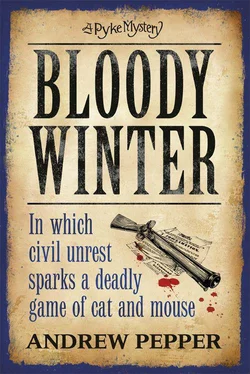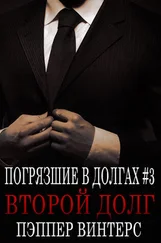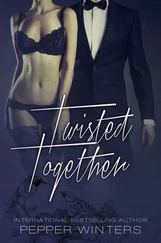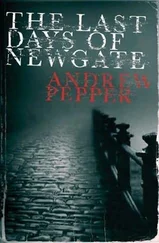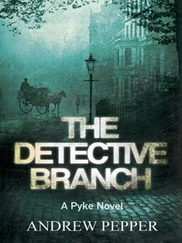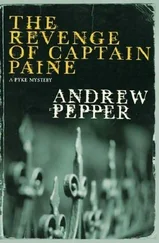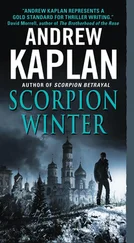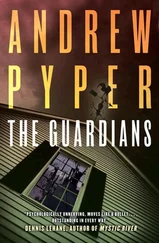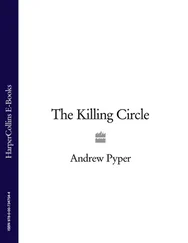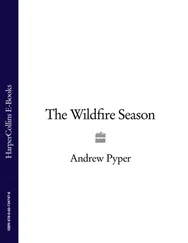Andrew Pepper - Bloody Winter
Здесь есть возможность читать онлайн «Andrew Pepper - Bloody Winter» весь текст электронной книги совершенно бесплатно (целиком полную версию без сокращений). В некоторых случаях можно слушать аудио, скачать через торрент в формате fb2 и присутствует краткое содержание. Жанр: Исторический детектив, на английском языке. Описание произведения, (предисловие) а так же отзывы посетителей доступны на портале библиотеки ЛибКат.
- Название:Bloody Winter
- Автор:
- Жанр:
- Год:неизвестен
- ISBN:нет данных
- Рейтинг книги:4 / 5. Голосов: 1
-
Избранное:Добавить в избранное
- Отзывы:
-
Ваша оценка:
- 80
- 1
- 2
- 3
- 4
- 5
Bloody Winter: краткое содержание, описание и аннотация
Предлагаем к чтению аннотацию, описание, краткое содержание или предисловие (зависит от того, что написал сам автор книги «Bloody Winter»). Если вы не нашли необходимую информацию о книге — напишите в комментариях, мы постараемся отыскать её.
Bloody Winter — читать онлайн бесплатно полную книгу (весь текст) целиком
Ниже представлен текст книги, разбитый по страницам. Система сохранения места последней прочитанной страницы, позволяет с удобством читать онлайн бесплатно книгу «Bloody Winter», без необходимости каждый раз заново искать на чём Вы остановились. Поставьте закладку, и сможете в любой момент перейти на страницу, на которой закончили чтение.
Интервал:
Закладка:
‘If it’s all the same to you,’ Bill said, ‘I’ll strip off his clothes before I toss him in the pit.’
Knox shook his head. ‘No, he goes in as he is. Clothes and all.’ He didn’t want the gravedigger to see the stab wound in the dead man’s stomach.
Bill looked up at him, squinting, and then shrugged. ‘Suit yourself.’ He went over to the barrow, scooped up the body and carried it to the edge of the pit. With a grunt, he pushed the body forward. Knox watched it fall. Bill went to collect some quicklime and sprinkled it over the clothed body. Now Knox understood why Bill had wanted to undress it.
Reading his mind, the gravedigger said, ‘I wouldn’t worry. A few more bodies, and they’ll close up this pit and dig another one.’
Knox just nodded.
‘Who was he, anyhow?’
‘A vagrant.’
The older man’s eyes narrowed. ‘Aren’t they all?’
The previous afternoon, Knox had taken the Tipperary Free Press to his nearly blind neighbour, Jeremy Brittas. Knox rented his smallholding from the Brittas family and twice a week read for the grandfather, who lived alone in the Mount Judkin house’s lodge. Despite the old man’s curmudgeonly manner, Knox relished these moments, as it was a chance to engage with a world beyond his front door.
Brittas liked him to read everything, even the notices for cold creams, macassar oil and pills to treat gonorrhoea. The previous day, the paper had reported more deaths in Skibbereen. On the same page, a notice for the new edition of the Economist magazine lauded the role that free trade had played in bringing about the moral and intellectual advancement of society. To Knox, it seemed like a bad joke.
‘Has free trade put bread on anyone’s table?’ he had asked Jeremy Brittas. ‘Well, has it?’
The old man hadn’t an answer.
Knox had read some more of the newspaper. ‘Why don’t they report the deaths we’re suffering here?’ He had looked up almost accusingly at his neighbour.
Brittas had taken his stick and banged it into the floor. ‘Read on, man. Read on.’
Knox had got to the end of the report about US President Polk’s promise to increase his country’s famine relief. He’d found himself nodding in agreement. ‘ Does America live under laws made by herself? She does. Does Ireland live under laws made by herself? She does not! Ireland pines, and starves and dies beneath the Upas tree of British Legislation. ’ At that point Brittas coughed and Knox had looked up.
‘Free trade might’ve made a rum job of feeding people but do you really think democracy would’ve improved the situation?’
‘I’d prefer to die poor but with my head held high than poor and enslaved,’ Knox replied.
‘And if food was just handed out to folk, who would ever bother to work for a living?’
‘But there is no work. That’s the problem. No work and no food, at least at prices that poor folk can afford.’
Knox was still thinking about this exchange when Duffy, a constable from Roscommon, shouted from the door. ‘Finally found you. They want us at the workhouse straight away. There’s a mob gathered outside.’
Six policemen assembled in front of the barracks. All except for Knox were Catholics from hard-working families; they had come from all over Ireland and lived together in the barracks. It made him an anomaly, and while nothing was ever said aloud, Knox knew that none of them really trusted him, believing that he’d been appointed as an informer to the Protestant commanders. Nothing could have been farther from the truth. In fact, Hastings and the other head-constables had always regarded Knox with suspicion, wondering why he had been willing to work for the same pay and conditions as the Catholic constables.
Hastings appeared from the station and told the men to go to the workhouse at once and disperse the mob. He did not say how they were meant to do this or what would happen if the mob refused to go quietly. He didn’t mention the word ‘force’ but it was implicit in everything he said. Why else had he instructed them to take their carbines?
A couple of days earlier, Knox had read about food riots in Clonmel. Now, it seemed, the same thing was about to take place in Cashel.
They trudged in silence along Boherclough Street past the Old Court building on their left, and then the Fever Hospital. Knox couldn’t speak for the others but he had already made a promise to himself that he wouldn’t open fire on his own countrymen.
A mob of about fifty or sixty had gathered outside the gates of the workhouse and Knox and the constables had to push their way through, using the butts of their carbines to get to the gates. There, they found Michael Doheny, chairman of the Board of Guardians, trying to plead with the men. Some were brandishing pickaxes, others brickbats. Earlier that afternoon, it transpired, the workhouse had stopped issuing any outdoor relief. Doheny was promising to see whether any food could be found for them. He was a hero to these men. A few years earlier he had stood up to one of the largest landowning families and forced them to make good the rate they owed the town. He’d used the money to fund relief projects in Cashel which, in turn, had kept many men and women from starvation. Now, this source of income had dried up and the mood was desperate. Hands aloft, Doheny was pleading with the men to go home to their families.
‘Home?’ one of them yelled. ‘We don’t have a home. Not since we were turned off our land.’
‘The workhouse can’t take any more.’ This time it was James Heany, vice-chairman of the Union, who’d spoken.
‘We just want to eat.’
‘My wife and baby haven’t fed in a week,’ another man shouted. ‘If I don’t get food, they’ll die.’ Further pleas were drowned out by the shouting.
Knox and the other constables fanned out in front of the gates. They were holding their carbines but hadn’t yet turned them against the crowd. Knox tried not to think about what might happen if one or two of the mob tried to storm the gates. Were they desperate or hungry enough to do such a thing? He stared at the crowd, saw his own terror mirrored in their faces.
‘I will personally make sure that supplies of corn are made available tomorrow for you to buy,’ Doheny yelled through cupped hands, trying to magnify his voice.
‘We can’t afford the prices the traders are charging,’ someone shouted back. There were murmurs of agreement.
Doheny held up his hands and waited for complete silence. ‘I will personally make sure you’ll be charged no more than two pennies for a pound.’
The market rate was now almost five pence for a pound of corn. Knox wondered how Doheny would make good on his promise but it seemed to do the job. Slowly the mob began to disperse, and the relief among the constables was palpable. Knox went over to congratulate Doheny. Grim-faced, the chair of the Board thanked him but said he still had to secure an agreement from the traders to sell the corn — if they had any left — at the low price.
A meeting to discuss the relief effort was due to start in the town hall on Main Street at eight, he added. It promised to be another stormy affair, as Lord Cornwallis and a representative of another large landowning family were due to attend. They would be asked to explain their unwillingness to pay for further supplies of corn, and Doheny wondered whether Knox and the other men would mind attending, in their capacity as defenders of the peace.
‘They’ll heckle Lord Cornwallis to start with, but mark my words, when he finishes, he’ll have the whole room eating out of his hand.’ Doheny — a man who had once organised a giant meeting in Cashel to agitate for the repeal of the Union and who fervently believed that Ireland should fight for independence — seemed more sad than angry at this prospect.
Читать дальшеИнтервал:
Закладка:
Похожие книги на «Bloody Winter»
Представляем Вашему вниманию похожие книги на «Bloody Winter» списком для выбора. Мы отобрали схожую по названию и смыслу литературу в надежде предоставить читателям больше вариантов отыскать новые, интересные, ещё непрочитанные произведения.
Обсуждение, отзывы о книге «Bloody Winter» и просто собственные мнения читателей. Оставьте ваши комментарии, напишите, что Вы думаете о произведении, его смысле или главных героях. Укажите что конкретно понравилось, а что нет, и почему Вы так считаете.
